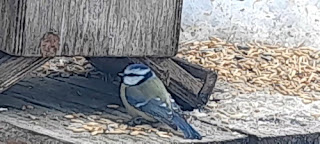God and the proposition of Faith (with allied topics )

So today what we are looking at is the acquired knowledge of God and allied topics. Before I start though, I am so happy that Spring is here. I took this picture on my walk as it reminds me of Pilgrims progress. The walk of faith has many roads, many mountains and valleys to climb. This crack in the road reminded me of God's grace. On page 72 Bavinck makes the point that in the past, what the innate knowledge of God was about is that actually we have been born with and have the capacity from our own being to know God, and acquired knowledge is basically comes to humans from outside of ourselves, externally by observation, and serves to augment and expand the former. Bavinck goes on to say that this isn't exactly 100% accurate. He says that all knowledge enters the human mind from without, innate only is a capacity for knowledge, but this innate capacity is only activated by the action and impact of the world within; while the seed of religion is indeed inherent in hum
